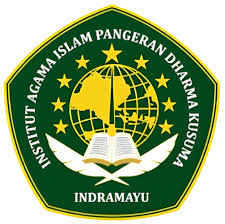Integrasi Akhlaq dalam Kehidupan Sehari-hari dan Praktik Bisnis Islami
DOI:
https://doi.org/10.55656/tjmes.v5i2.227Keywords:
Akhlaq, Daily life, Islamic business, Ethics, JusticeAbstract
The integration of akhlaq (Islamic morals) into daily life and Islamic business practices is an effort to incorporate moral and ethical values into all aspects of life and economic activities. In the context of daily life, good akhlaq includes attitudes such as honesty, trustworthiness, justice, and empathy towards others. Meanwhile, in Islamic business practices, principles such as justice, honesty, and social responsibility are highly emphasized. Islamic business strives to create a balance between individual and societal interests and to avoid practices that harm others. The integration of akhlaq in business also promotes the implementation of a sustainable and just economic system. By applying akhlaq in life and business, it is hoped that a more harmonious, just, and prosperous society can be created. Research findings indicate that awareness of the importance of akhlaq in daily life and business is very high among individuals and companies. The application of akhlaq values in daily life and business has a significant positive impact. Individuals who consistently apply akhlaq report improvements in the quality of social relationships, psychological well-being, and a deeper sense of satisfaction in their lives. Despite the high awareness of akhlaq values, the practical application of these values still faces various challenges. External pressures, a lack of practical understanding, and unsupportive organizational cultures often become obstacles to integrating akhlaq.
Keywords: Akhlaq, Daily life, Islamic business, Ethics, Justice
References
Ahmad, K., & Ogunsola, O. (2011). An Empirical Assessment of Islamic Leadership Principles. International Journal of Commerce and Management, 21(3), 239–253.
Al-Ghazali, I. (2004). Ihya Ulumuddin (Menghidupkan Ilmu-Ilmu Agama). Jakarta: Pustaka Azzam.
Al-Qardhawi, Y. (2002). Etika Bisnis dalam Islam. Jakarta: Gema Insani Press.
Chapra, M. U. (2000). The Future of Economics: An Islamic Perspective. Leicester: The Islamic Foundation.
Creswell, J. W. (2014). Research Design: Qualitative, Quantitative, and Mixed Methods Approaches. Thousand Oaks, CA: Sage Publications.
Khan, M. F. (2013). Integrating Islamic Principles in Modern Management Concepts: A Review of Literature. International Journal of Management and Business Research, 3(2), 99–106.
Rizk, R. A. (2008). Back to Basics: An Islamic Perspective on Business and Work Ethics. Social Responsibility Journal, 4 (1/2), 246–254.
Rofiqoh, I., & Zulhawati. (2020). Metode Penelitian Kuantitatif, Kualitatif, dan Campuran. Yogyakarta: Pustaka Pelajar.
Seminar Nasional Ekonomi Syariah. (2018). Penerapan Akhlaq dalam Bisnis Islami. Seminar Nasional Ekonomi Syariah.
Strauss, A., & Corbin, J. (1998). Basics of Qualitative Research: Techniques and Procedures for Developing Grounded Theory. Thousand Oaks, CA: Sage Publications.
Sumarta, Edy, S., & Mardiyana. (2022). Sosiologi Hukum Islam: Antara Kajian Metodologis, Teoritis, dan Praktis. Indramayu: Penerbit Adab.
Zarabozo, Jamal A. (1997). The Life of Prophet Muhammad: Highlights and Lessons. Islamic Studies Journal, 36 (2), 215–240.








